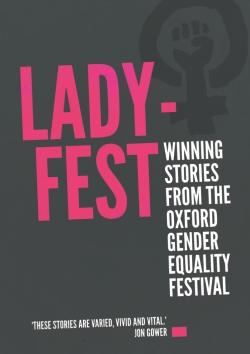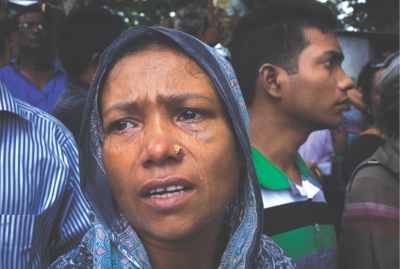| Home - Back Issues - The Team - Contact Us |
 |
| Volume 11 |Issue 37| September 21, 2012 | |
|
|
Letters From Rome, With Love The cover story published last week was a very interesting read. It highlighted the complex plight of the Bangladeshi immigrant using the personal narratives of different people from various backgrounds. It accurately debunked the myth of the Roman dream; so many Bangladeshis give up everything they have – their property, status and a sense of belonging – in order to pursue what they think is going to be a perfect life once they arrive in Italy. But, as the story shows, the reality is very different. Reading the story, I was reminded of an Italian immigrant I had met once on a plane. He used to be an office manager with his own car in a private company in Bangladesh, but he left all that behind and sold his paternal property to pay a middleman. Even though he was aware that he wouldn't have a job once he got there, he was convinced that he could obtain work without much trouble. Of course, he soon realised the difficulty in doing that and is now stuck working as a waiter in a restaurant with a meagre salary. He left Bangladesh when his wife was pregnant, and had never seen his four-year-old child. When asked why he didn't just pack up and leave, he said he had lost too much and could not go back to his relatives with empty hands. As becomes obvious from the cover story, stories like these are very common, not only in Italy but all over the world. I hope the article encourages some people, who are willing to sacrifice everything for the possibility of a better tomorrow, to be a little more realistic and careful. Shayna S Rahman
Lady Fest Anthology I am really glad that the Star has begun reviewing books on a more regular basis as I have often taken their recommendations and been glad for it. Even though I have yet to read Lady Fest, an anthology of feminist stories, it is exactly the sort of literature Bangladeshi fiction lovers would not know about if it weren't reviewed. It is fantastic that one of our own writers, Farah Ghuznavi, is featured along with other established writers across the globe. It will mean that a piece of our world will be read by someone perhaps in the USA, Ireland or Brazil. I do, however, think reviews should be of books that we, a Bangladeshi audience, can acquire. Fiction may know no boundaries, but many like me do and that is a lack of an international credit card to buy anything online. It would be great if The Daily Star could make available books they choose to feature, perhaps through a subscription or Book Club. Riaz Hawladar Democracy Maimed
It is always encouraging to know that the media, civil society and mass people have taken such active stances to protest the series of unacceptable incidents about Limon. What we should remember, however, in our struggle to establish Limon's rights, is that Limon is not an isolated incident. There are thousands and thousands of Limons in this country, some of whom live but are too afraid to repeat their stories, and some who disappear from the face of this country in the blink of an eye. Despite the known records of human rights violations of law enforcement agencies, we continue to allow them to run and dictate the law and order situation of the country. If our civil society is so strong and powerful, why cannot it take a collective stance and demand that the extra judicial powers of the law enforcement agencies be curbed immediately? Yes, human rights activists at different points have vocalised their criticisms of the RAB and demanded an end to its activities, but as of now, there hasn't been a coherent and strong movement against its dismantlement. Even the human rights commissioner has used excuses on behalf of the RAB instead of condoning it! I am glad that some activists and writers are now taking a stronger position regarding the nature and function of these law enforcement agencies. I hope they can build a mass movement to hold the state (it is irrelevant really which party is in power) accountable for the wrongdoings of these institutions and take them apart immediately, if we are even going to pretend we are a democracy. Sharmin Mustafiz Mind your language! It is heartening to read that the parliament is now allowing students to observe its sessions in person and learn about the parliamentary process and the functioning of democracy. Any parliament of any country and its proceedings and activities should be perfectly transparent to the citizens it represents. It should uphold the values the country is built on. But unfortunately, in Bangladesh, the parliament itself is often a farce and its proceedings an unimaginable travesty. With the absence of the opposition from the parliament for prolonged periods of time, there is very little hope of any real progress in the legislature. Meanwhile, during the sessions, the parliamentarians engage in such petty personal attacks, using and abusing language that do not belong to a decent household, much less the most honourable house of a democratic country. I really do hope that the parliamentarians take note of the presence of children in the “holy” quarters and take drastic measures to change the way they behave with each other. They should also remind themselves why they were put there in the first place not to put forward their personal interests but to advocate the interests of the mass people. Knowing our lawmakers and their incapability to feel a sense of shame about their shortcomings, I remain sceptical about the possibility of any real change happening in their hearts and minds, simply because the young minds are there to learn from them. For the sake of the future of the country, however, I hope I am proved wrong. Shitanshu Borua
Copyright (R) thedailystar.net 2012 |
||||||||

